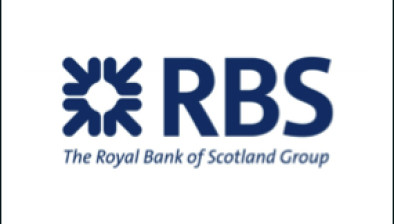RBS: Permanent job placements growth remained marginal in December
Permanent staff appointments increased for the second consecutive month in December, although growth remained historically subdued, the latest Royal Bank of Scotland Report on Jobs has found.
Sebastian Burnside, chief economist at Royal Bank of Scotland
The data has also revealed that temp billings declined for the first time since June, albeit only fractionally. At the same time, pay pressures softened, with permanent starters’ pay rising only slightly, amid weaker reductions in candidate availability.
Recruitment agencies in Scotland highlighted a further increase in permanent placements in December, extending the current sequence of expansion to two months. That said, the latest uptick was little-changed from November and only marginal. At the UK level, permanent placements rose for the first time in a year. The increase, albeit moderate, outpaced the upturn recorded in Scotland.
Meanwhile, temporary staff billings across Scotland fell for the first time since June in December, although the rate of decline was only fractional. The trend in Scotland contrasted with the UK as a whole, however, with temp billings at the national level expanding at the quickest rate for three months.
Permanent vacancy growth across Scotland was sustained during the latest survey period, thereby extending the current sequence of increase to over nine years. The rise was the softest for two months, however, and only mild. Demand for permanent staff also rose across the UK as a whole, though the pace of vacancy growth also remained modest.
Concurrently, demand for temporary staff increased during December, as has been the case in each month since November 2009. Moreover, the rate of growth was the quickest for three months and sharp overall.
Latest data indicated that pay pressures weakened at the end of 2019. Starting salaries awarded to permanent joiners increased at the softest rate for 82 months during the latest survey period, rising only fractionally overall.
Meanwhile, average hourly pay rates for temporary staff continued to increase. The uptick was the softest since October 2016 and only mild, however. At the UK level, temp wages also increased during the latest survey period, with the rate of inflation outpacing that seen in Scotland.
December data highlighted a further reduction in the availability of permanent candidates. Although sharp overall, the fall was the softest recorded since April 2017.
Short-term staff supply also contracted, although at a slower rate than that seen in November. Nonetheless, the reduction remained sharp overall and outpaced that seen across the UK as a whole.
Sebastian Burnside, chief economist at Royal Bank of Scotland, said: “December’s Jobs survey highlighted a back-to-back rise in permanent appointments across Scotland, although the rate of increase was broadly unchanged from November. Moreover, jobs growth remains subdued both historically and when compared to the UK as a whole. Notably, the upturn in permanent placements at the national level outpaced that seen in Scotland for the first time since early 2018.
“Meanwhile, temp billings fell for the first time since June, although the decline was only fractional overall. Concurrently, pay pressures weakened, with permanent starting salary inflation easing to an 82-month low and temp pay rising at the softest pace for over three years.”









